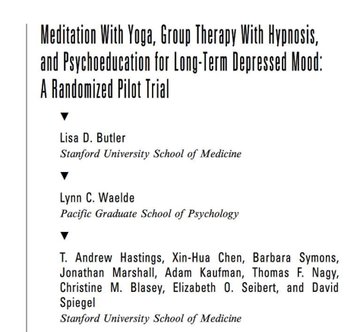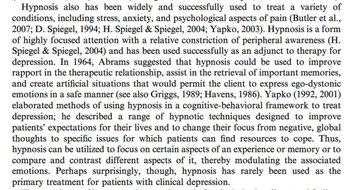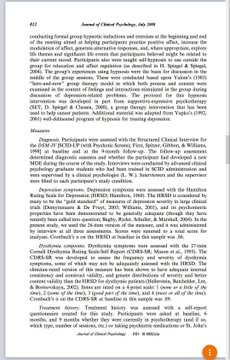Ninety miles from the South Eastern tip of the United States, Liberty has no stead. In order for Liberty to exist and thrive, Tyranny must be identified, recognized, confronted and extinguished.
infinite scrolling
Thursday, October 4, 2018
Wednesday, October 3, 2018
Congressman Details Robert Mueller’s Reported Excessive Drinking During the Work Day; Insiders Call For FBI Investigation
U.S. Special Counsel Robert Mueller is being tossed into the Brett Kavanaugh and Christine Ford alcohol drinking controversy, according to an upcoming book detailing and revealing Deep State and D.C. secrets.
Mueller reportedly has been spending parts of his work days drinking as well as his evenings, according to detailed accounts and reporting from the upcoming Deep State tell-all book ‘PAINE: How We Dismantled the FBI in Our Pajamas.’
Rumors of Mueller’s drinking have gone mainstream in recent months after employees at upscale D.C. watering holes notified Congressional personnel of the Special Counsel’s frequent trips to the bar, often during week days, insiders report.
This obviously is concerning, given Mueller’s key role in D.C. politics as well as his influence over the White House and President Trump. And some in Congress are calling for an investigation. But they dare not challenge Mueller publicly. Yet.
Just days ago Sen. Cory Booker grilled Supreme Court nominee Judge Brett Kavanaugh at a Senate hearing, asking him if he drank during the day when he was a teenager in the summer. Booker should change his focus on Mueller, according to the new book’s author, and rumors swirling a key player in D.C. and beyond.
“This is just a very very small part of the book,” said author Mike Moore who writes under the pen name Thomas Paine. “With all the emphasis on Judge Kavanaugh’s teen drinking by the Democrats and their media enablers, I felt this was now newsworthy pertaining to Mueller’s excessive drinking. This is not something that happened 35 years ago. This is happening now.”
Moore agreed the information leaked by employees of high-scale D.C. drinking establishments about Mueller’s drinking should be investigated by Congress and law enforcement entities.
“If Kavanaugh is fair game, then certainly Mueller should be and the implications about his day drinking are disturbing,” Moore said. “This is a man investigating the President of the United States. This is a potential powder keg.”
Moore dropped the bombshell on Mueller’s drinking on Tuesday night via...
Mueller reportedly has been spending parts of his work days drinking as well as his evenings, according to detailed accounts and reporting from the upcoming Deep State tell-all book ‘PAINE: How We Dismantled the FBI in Our Pajamas.’
Rumors of Mueller’s drinking have gone mainstream in recent months after employees at upscale D.C. watering holes notified Congressional personnel of the Special Counsel’s frequent trips to the bar, often during week days, insiders report.
This obviously is concerning, given Mueller’s key role in D.C. politics as well as his influence over the White House and President Trump. And some in Congress are calling for an investigation. But they dare not challenge Mueller publicly. Yet.
Just days ago Sen. Cory Booker grilled Supreme Court nominee Judge Brett Kavanaugh at a Senate hearing, asking him if he drank during the day when he was a teenager in the summer. Booker should change his focus on Mueller, according to the new book’s author, and rumors swirling a key player in D.C. and beyond.
“This is just a very very small part of the book,” said author Mike Moore who writes under the pen name Thomas Paine. “With all the emphasis on Judge Kavanaugh’s teen drinking by the Democrats and their media enablers, I felt this was now newsworthy pertaining to Mueller’s excessive drinking. This is not something that happened 35 years ago. This is happening now.”
Moore agreed the information leaked by employees of high-scale D.C. drinking establishments about Mueller’s drinking should be investigated by Congress and law enforcement entities.
“If Kavanaugh is fair game, then certainly Mueller should be and the implications about his day drinking are disturbing,” Moore said. “This is a man investigating the President of the United States. This is a potential powder keg.”
Moore dropped the bombshell on Mueller’s drinking on Tuesday night via...
Christine Blasey Ford Co-Authored Paper on “Creating Artificial Situations” Via Hypnosis Used To Retrieve Memories
Christine Blasey Ford, a California woman who has accused Supreme Court nominee Brett Kavanaugh of attempted rape in the 1980’s, co-authored an academic study that cited the use of hypnosis as a tool to retrieve memories in traumatized patients. The academic paper, entitled “Meditation With Yoga, Group Therapy With Hypnosis, and Psychoeducation for Long-Term Depressed Mood: A Randomized Pilot Trial,” described the results of a study that tested the efficacy of certain treatments on 46 depressed individuals. The study was published by the Journal of Clinical Psychology in May 2008.
While the paper by Ford and several other co-authors focused on whether various therapeutic techniques, including hypnosis, alleviate depression, it also discussed the therapeutic use of hypnosis to “assist in the retrieval of important memories” and to “create artificial situations” to assist in treatment.
Ford’s paper cited a controversial 1964 paper on the use of hypnosis to treat alcoholics and claimed that “hypnosis could be used to improve rapport in the therapeutic relationship, assist in the retrieval of important memories, and create artificial situations that would permit the client to express ego-dystonic emotions in a safe manner.” The study by Ford and her co-authors also used “self-hypnosis” to help treat their randomized sample of patients.
“Participants also were taught self-hypnosis to use outside the group for relaxation and affect regulation (as described in H. Spiegel & Spiegel, 2004),” the researchers explained. “The group’s experiences using hypnosis were the basis for discussion in the middle of the group sessions.”
The 2004 text by Spiegel and Spiegel referenced by Ford and her fellow researchers discusses in detail the use of hypnotism, and even self-hypnotism, to recover memories from traumatic episodes.
“Remember that all hypnosis is really self-hypnosis,” the authors of the referenced 2004 text on hypnotism wrote. “[T]herefore, therapists are only tapping into their patients’ natural ability to enter trance state.”
The authors noted that hypnosis as a means of recovering traumatic memories could also lead to the “contamination” of those memories.
“Patients are highly suggestible and easily subject to memory contamination,” they noted.
It is not known whether Ford underwent hypnotic therapy regarding her alleged assault, as she and her attorneys have refused to provide detailed notes from her therapists to the Senate despite providing portions to reporters for the Washington Post. Ford testified under oath that Kavanaugh’s name appears nowhere in her therapists’ notes.
Rachel Mitchell, the Arizona sex-crimes prosecutor who questioned Ford during her testimony before the Senate Judiciary Committee last Thursday, noted in her official report on Ford’s testimony that Ford’s ever-changing story was likely affected by the behavior of Ford’s attorneys, as well as the Democratic lawmakers and their staffs who interacted with Ford prior to her testimony.
Mitchell noted that Ford’s story seemed to change with each telling. In a July 6 text to the Washington Post, Ford claimed she was assaulted in the “mid 1980s.” That changed to the “early 80s” in a July 30 letter to Sen. Dianne Feinstein (D-Calif.). Similarly, she claimed that the assault happened to her in her “late teens,” before claiming that it happened when she was...
While the paper by Ford and several other co-authors focused on whether various therapeutic techniques, including hypnosis, alleviate depression, it also discussed the therapeutic use of hypnosis to “assist in the retrieval of important memories” and to “create artificial situations” to assist in treatment.
BREAKING: This is HUGE (waiting for permission to h/t): One of Christine Ford Blasey's research articles in 2008 included a study in which participants were TAUGHT SELF-HYPNOSIS & noted hypnosis is used to retrieve important memories "AND CREATE ARTIFICAL SITUATIONS."
Ford’s paper cited a controversial 1964 paper on the use of hypnosis to treat alcoholics and claimed that “hypnosis could be used to improve rapport in the therapeutic relationship, assist in the retrieval of important memories, and create artificial situations that would permit the client to express ego-dystonic emotions in a safe manner.” The study by Ford and her co-authors also used “self-hypnosis” to help treat their randomized sample of patients.
“Participants also were taught self-hypnosis to use outside the group for relaxation and affect regulation (as described in H. Spiegel & Spiegel, 2004),” the researchers explained. “The group’s experiences using hypnosis were the basis for discussion in the middle of the group sessions.”
The 2004 text by Spiegel and Spiegel referenced by Ford and her fellow researchers discusses in detail the use of hypnotism, and even self-hypnotism, to recover memories from traumatic episodes.
“Remember that all hypnosis is really self-hypnosis,” the authors of the referenced 2004 text on hypnotism wrote. “[T]herefore, therapists are only tapping into their patients’ natural ability to enter trance state.”
The authors noted that hypnosis as a means of recovering traumatic memories could also lead to the “contamination” of those memories.
“Patients are highly suggestible and easily subject to memory contamination,” they noted.
It is not known whether Ford underwent hypnotic therapy regarding her alleged assault, as she and her attorneys have refused to provide detailed notes from her therapists to the Senate despite providing portions to reporters for the Washington Post. Ford testified under oath that Kavanaugh’s name appears nowhere in her therapists’ notes.
Rachel Mitchell, the Arizona sex-crimes prosecutor who questioned Ford during her testimony before the Senate Judiciary Committee last Thursday, noted in her official report on Ford’s testimony that Ford’s ever-changing story was likely affected by the behavior of Ford’s attorneys, as well as the Democratic lawmakers and their staffs who interacted with Ford prior to her testimony.
Mitchell noted that Ford’s story seemed to change with each telling. In a July 6 text to the Washington Post, Ford claimed she was assaulted in the “mid 1980s.” That changed to the “early 80s” in a July 30 letter to Sen. Dianne Feinstein (D-Calif.). Similarly, she claimed that the assault happened to her in her “late teens,” before claiming that it happened when she was...
Subscribe to:
Comments (Atom)














